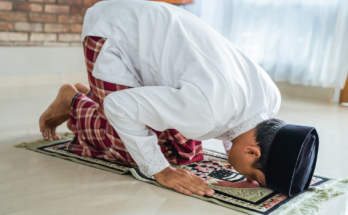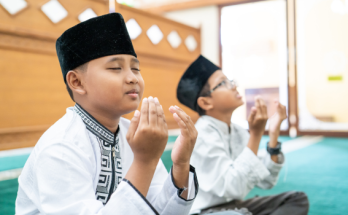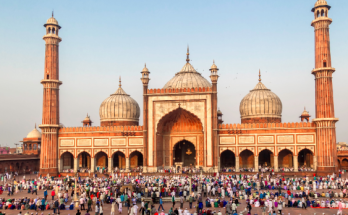العلاقة الإلهية: الكشف عن قوة الصلاة اليومية
الصلاة اليومية هي عملية روحية ودينية تمارسها المسلمون في جميع أنحاء العالم. تعتبر الصلاة من أركان الإسلام الخمسة، وهي الواجب الذي يقوم به المسلمون خمس مرات في اليوم والليلة. إن الصلاة هي وسيلة للتواصل المباشر مع الله، وتعبير عن التذلل والتقدير للخالق.
تقام الصلاة في أوقات محددة طوال اليوم، وهذه الأوقات معتمدة على حركة الشمس والقمر وتغيراتهما على مدار السنة. تبدأ الصلاة الفجرية قبل طلوع الشمس، ثم تليها صلاة الظهر في وقت الظهر، وصلاة العصر عند الغروب، ثم صلاة المغرب عند غروب الشمس، وأخيرًا صلاة العشاء بعد غياب الشفق.
تتألف الصلاة من سلسلة من الحركات والأذكار التي يقوم بها المصلي بترتيب محدد. يبدأ المصلي بالوضوء، وهو عملية تنظيف الجسد والروح قبل أداء الصلاة. يشتمل الوضوء على غسل الوجه والأيدي والقدمين ومسح الرأس والأذنين. بعد ذلك، يقف المصلي في اتجاه الكعبة في مكة المكرمة، ويبدأ الصلاة بالتكبيرة الأولى.
تتضمن الصلاة مجموعة متنوعة من الحركات التي يؤديها المسلمون وهم واقفون وجالسون وساجدون. يقوم المصلي بتلاوة آيات من القرآن الكريم والتسبيح والتهليل والدعاء. تنتهي الصلاة بتحية السلام، حيث يلتقي المسلمون عند اليمين واليسار ويتبادلون التحية والدعاء لبعضهم البعض.
تعتبر الصلاة تجربة شخصية وروحية للمسلمين. فهي فرصة للتأمل والاسترخاء والتواصل مع الله. إن أداء الصلاة بانتظام يعزز الانضباط الذاتي والتركيز والتأمل. كما أن الصلاة تعزز الوحدة والترابط بين المسلمين، حيث يجتمعون في المساجد لأداء الصلاة الجماعية.
تعد الصلاة أيضًا فرصة للتذكير بالقيم الروحية والأخلاقية. إنها تذكر المسلمين بأهمية الصبر والشكر والتواضع والرحمة. تعلم الصلاة المسلمين العفو والمغفرة والتسامح. إنها تعزز القدرة على الانتظام في الحياة اليومية وتحقيق التوازن بين العبادة والعمل والأسرة والمجتمع.
يعتبر الصلاة اليومية ركنًا أساسيًا في حياة المسلم. إنها تمنح الروح السكينة والراحة والاتصال العميق مع الله. من خلال الصلاة، يعبر المسلمون عن اعترافهم بالتبعية والاعتماد على الله في حياتهم. إنها فرصة للتوبة والاستغفار وتحقيق الشفاعة والقرب من الله.
في النهاية، تعتبر الصلاة اليومية أكثر من مجرد واجب ديني. إنها أسلوب حياة وفلسفة يمارسها المسلمون في كل مرحلة من حياتهم. إنها تمنحهم السلام الداخلي والارتباط بالمحيط الروحي. إن الصلاة تعزز الإيمان والأمل والتفاؤل، وتمنح المسلمين القوة والتوجيه في وجه التحديات الحياتية.
The Divine Connection: Unveiling the Power of Daily Prayer
Daily prayer is a spiritual and religious process practiced by Muslims around the world. Prayer is one of the five pillars of Islam, and it is the duty that Muslims perform five times a day and night. Prayer is a means of direct communication with God, and an expression of humility and appreciation for the Creator.
Prayers are held at specific times throughout the day, and these times depend on the movement of the sun and moon and their changes throughout the year. The dawn prayer begins before sunrise, then it is followed by the noon prayer at the time of noon, the afternoon prayer at sunset, then the sunset prayer at sunset, and finally the evening prayer after the absence of twilight.
Prayer consists of a series of movements and remembrances performed by the worshiper in a specific order. The worshiper begins with ablution, which is the process of cleansing the body and soul before performing the prayer. Ablution includes washing the face, hands and feet and wiping the head and ears. After that, the worshiper stands in the direction of the Kaaba in Makkah Al-Mukarramah, and begins the prayer with the first takbeer.

Prayer includes a variety of movements that Muslims perform while standing, sitting, and prostrating themselves. The worshiper recites verses from the Holy Quran, praises, praises, and supplications. The prayer ends with a greeting of peace, where Muslims meet on the right and left and exchange greetings and supplications for each other.
Prayer is a personal and spiritual experience for Muslims. It is an opportunity to meditate, relax and connect with God. Performing prayer regularly promotes self-discipline, focus and meditation. Prayer also enhances unity and interdependence among Muslims, as they gather in mosques to perform collective prayers.
Prayer is also an opportunity to recall spiritual and moral values. It reminds Muslims of the importance of patience, gratitude, humility and mercy. Prayer teaches Muslims pardon, forgiveness and tolerance. It enhances the ability to organize in daily life and to balance worship, work, family and community.
Daily prayer is an essential pillar of a Muslim’s life. It gives the soul peace, comfort and a deep connection with God. Through prayer, Muslims express their acknowledgment of dependence on God in their lives. It is an opportunity to repent, seek forgiveness, achieve intercession, and get close to God.
In the end, daily prayer is more than just a religious duty. It is a way of life and a philosophy practiced by Muslims at every stage of their lives. It gives them inner peace and connection with the spiritual surroundings. Prayer promotes faith, hope and optimism, and gives Muslims strength and guidance in the face of life’s challenges.


